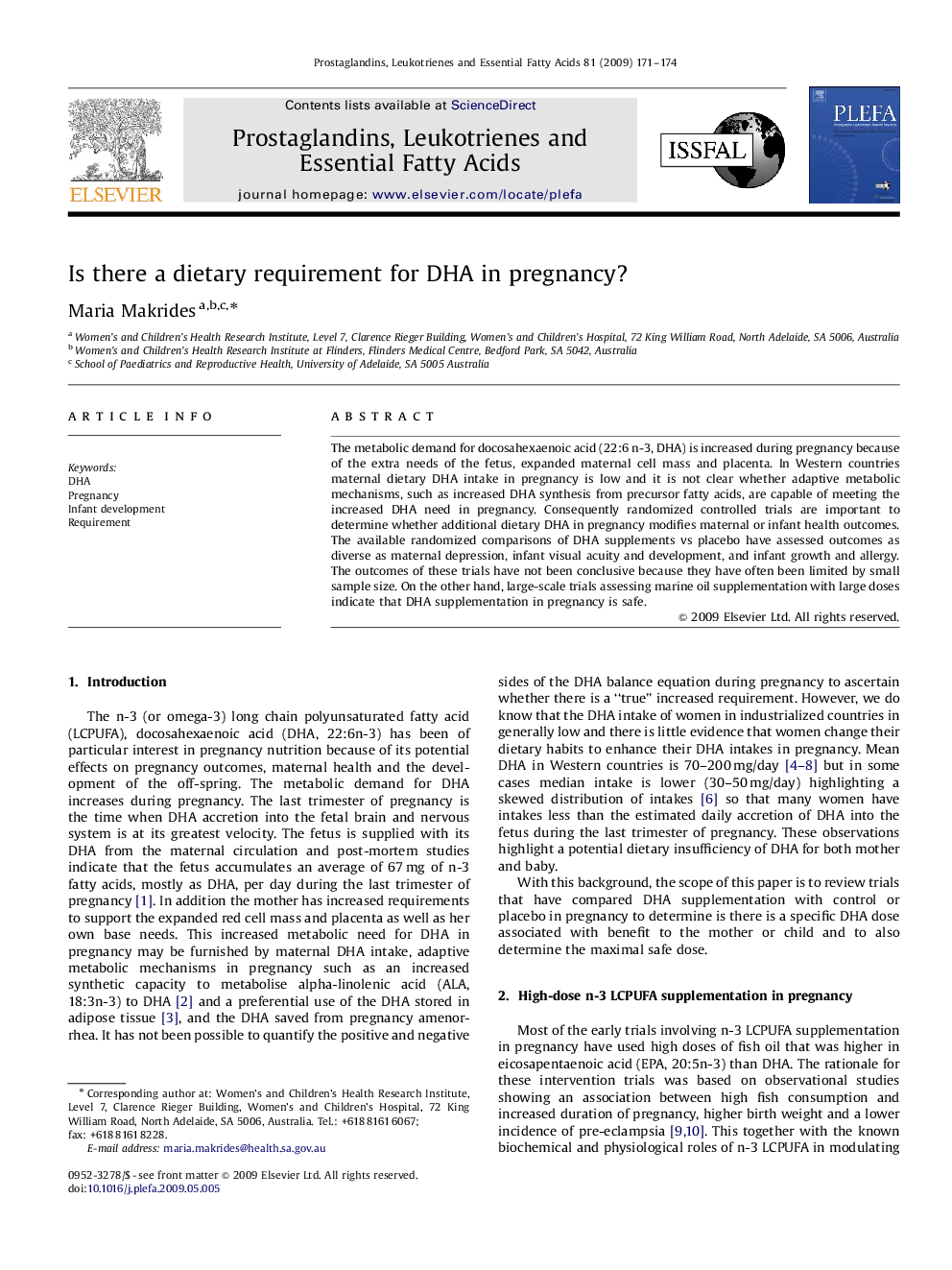| Article ID | Journal | Published Year | Pages | File Type |
|---|---|---|---|---|
| 2778006 | Prostaglandins, Leukotrienes and Essential Fatty Acids (PLEFA) | 2009 | 4 Pages |
The metabolic demand for docosahexaenoic acid (22:6 n-3, DHA) is increased during pregnancy because of the extra needs of the fetus, expanded maternal cell mass and placenta. In Western countries maternal dietary DHA intake in pregnancy is low and it is not clear whether adaptive metabolic mechanisms, such as increased DHA synthesis from precursor fatty acids, are capable of meeting the increased DHA need in pregnancy. Consequently randomized controlled trials are important to determine whether additional dietary DHA in pregnancy modifies maternal or infant health outcomes. The available randomized comparisons of DHA supplements vs placebo have assessed outcomes as diverse as maternal depression, infant visual acuity and development, and infant growth and allergy. The outcomes of these trials have not been conclusive because they have often been limited by small sample size. On the other hand, large-scale trials assessing marine oil supplementation with large doses indicate that DHA supplementation in pregnancy is safe.
